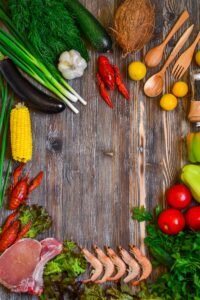Nutrition for Ailing Kidneys: How to Manage a Renal Diet

Renal diets are special diets that are designed to control the buildup of waste and fluid in the body in people with kidney disease. It is important for people with chronic kidney disease (CKD) to follow such a restricted diet to help delay the disease progression and keep the kidneys functioning for as long as possible. A renal diet is low in sodium, potassium, and phosphorus, as these three nutrients can all be harmful to the kidneys when their levels become too high.
Some common foods a renal diet should limit or avoid include processed meats, pre-packaged meals, canned soups, salty snacks, high-sodium condiments, pickled food, and canned vegetable juices, as they are all high in sodium. In addition to controlling the intake of sodium, people following a renal diet must also watch their intake of potassium and phosphorus as well. Potassium-rich foods including potatoes, bananas, oranges, cantaloupes, dates, and leafy greens should be limited, and phosphorus-rich foods such as dairy products, almonds, broccoli and cauliflower, legumes, grain products, and sunflower and pumpkin seeds should be avoided.
In addition to reducing the intake of sodium, potassium, and phosphorus, people with kidney disease should also focus on consuming adequate amounts of protein. Protein is an important nutrient for muscle health, and protein-rich foods, such as fish, eggs, poultry, and some dairy products, are important for people with CKD to maintain muscle mass in order to maintain their overall health.
People with CKD must also watch their intake of fluids, especially if their kidneys are no longer functioning or if they are experiencing swelling due to the buildup of fluid in their body. Consuming too much fluid can lead to further problems for people with kidney disease.
A renal diet can be a challenging but ultimately beneficial change for people living with kidney disease. Considering these dietary restrictions carefully and continuing to consult a physician regarding dietary needs are both important steps to ensure that people with CKD are following the best dietary plan. A strict renal diet is an important choice for people with kidney disease, and it can be a beneficial lifestyle choice that can help delay the progression of the disease.

Comments